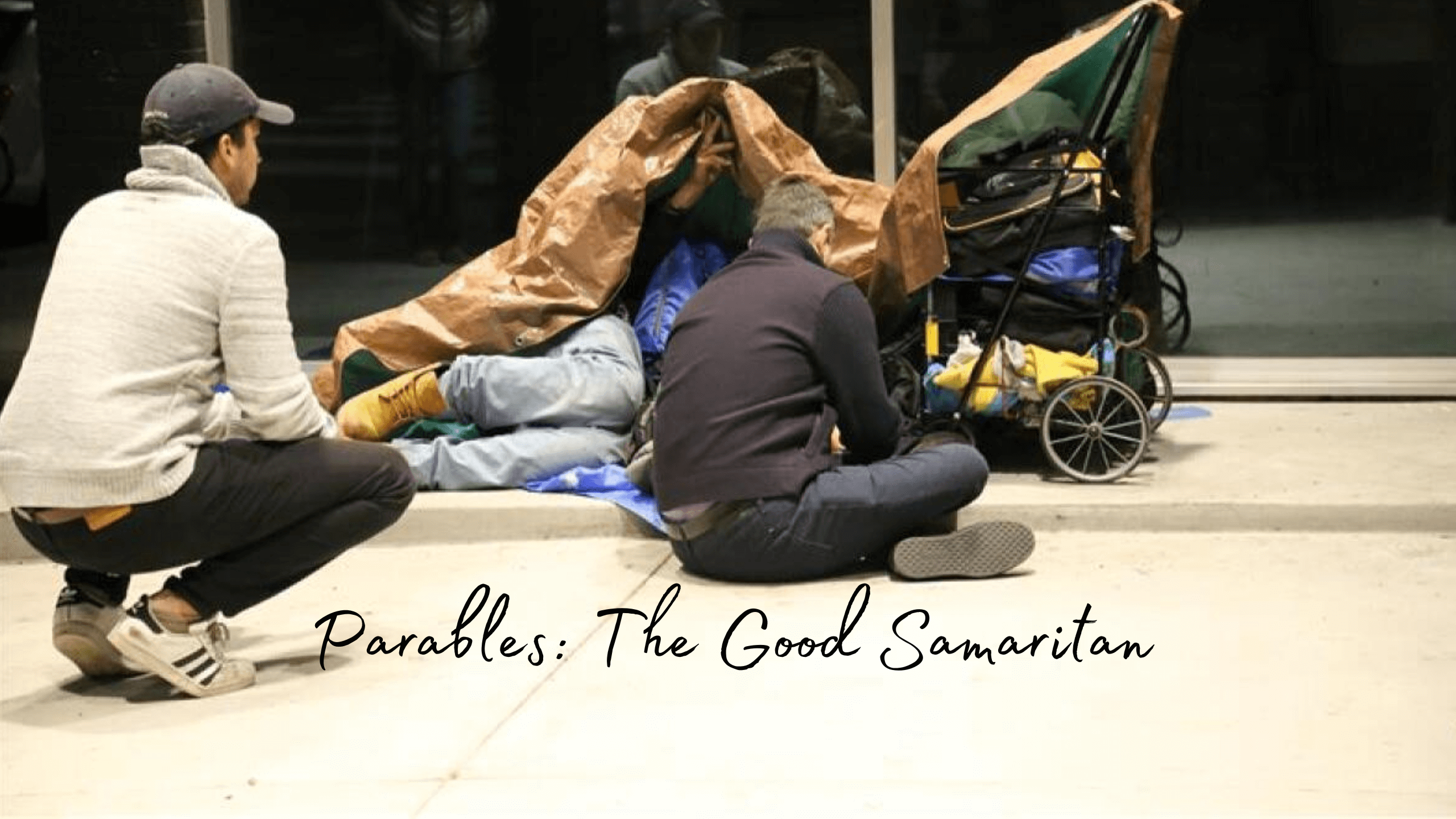Writers write stories for the specific audience they want to convince. The Gospel of Luke was written by Luke who was a Gentile. His audience was also Gentile.
Most scholars think that an initial Gospel was written perhaps ten years after the death and resurrection of Jesus. This Gospel is not extant today, but is known as the “Q”. The Gospel of Mark was written about 70 AD, using “Q”, the other stories were passed down by word of mouth, and by the Holy Ghost. Matthew was written about 80 AD and “Q” was not present anymore, so Matthew used Mark, oral tradition, and the Holy Spirit. Luke was written about 85 AD.
Luke used Mark, Matthew, the Oral Tradition, and the Holy Ghost to write his Gospel. Because Luke was writing to non-Jews, he had different concerns from other writers. Luke highlighted outcasts and showed the love that Jesus had for people who were on the margins of Judaism. The Samaritan parable, found in Luke 10:25-37 is one such story that looks deeper into Jewish ethical teaching.
This famous parable begins in verse 25 with an expert in Jewish law saying to Jesus, “Teacher, what do I need to do in order to inherit eternal life” To which Jesus responded by answering the lawyer’s question with a question of his own saying in verse 26, “What is written in the Law? How do you read it?” The lawyer responded as he should saying in verse 27, “Love the Lord your God with all your heart and with all your soul, and with all your strength and with all your mind, and love your neighbor as yourself.” This answer was straight out of the Torah from Deuteronomy 6:5 and Leviticus 19:18.
Jesus knew how the lawyer would answer his question. It was textbook Jewish teaching. So Jesus said to him in verse 28, “You have answered correctly, so do this and you will live.” Jesus wasn’t telling this Jewish man that could obtain eternal life, only that ‘if’ he could do what he said, then he would have eternal life. The problem as Jesus knew it was, no one can do the requirements of the law because everyone is a sinner.
Jesus has established the first of his lesson objectives for this lawyer. Point 1; You can’t receive eternal life through what you do.
The lawyer knew Jesus had outmaneuvered him and he needed to save face in front of the crowd of listeners so trying to justify himself in verse 29 he asked Jesus, “Who is my neighbor?” The Jews had a long list of guidelines to establish who was your neighbor. Those guidelines were based on social class, status, position, lineage, and so on. In short, those associated with the temple or the Jewish traditions and rituals were not neighbors to the working class or any non-Jews.
Jesus knew the neighbor guidelines so he went straight to the Samaritan story in verses 30 through 35 saying, “A man was going down from Jerusalem to Jericho when he was attacked by robbers. They stripped him of his clothes, beat him, and went away, leaving him half dead. A priest happened to be going down the same road when he saw the man, he passed by on the other side. So too, a Levite, when he came to the place and saw him, passed by on the other side. But a Samaritan, as he traveled, came where the man was; and when he saw him, he took pity on him. He went to him and bandaged his wounds, pouring on oil and wine. Then he put the man on his own donkey, brought him to an inn, and took care of him. The next day he took out two denarii and gave them to the innkeeper. ‘Look after him,’ he said, ‘and when I return, I will reimburse you for any extra expense you may have.'”
When Jesus had finished the parable he asked the lawyer in verse 36, “Which of these three do you think was a neighbor to the man who fell into the hands of robbers?” The lawyer didn’t have to think very hard because he knew where the lesson of the story was pointing so in verse 37 he relied on Jesus saying, “The one who had mercy on him.” Jesus had him exactly where he wanted him so he could learn this Bible lesson and concluded by saying, “Go do the same.”
Now Jesus has established the second of his lesson objectives. Point 2; You are the neighbor to anyone you help who is in need.
The Samaritan was the neighbor to the man in need because it was the compassionate thing to do. In this Samaritan lesson, believers are not the lawyer, priests, Levites, or even the Good Samaritan. The Good Samaritan is the person of Jesus. He saw our powerlessness in our sin, had compassion for us, healed us with His death, and placed us in the care of His Spirit until His return.
The lesson of the good Samaritan, for the lawyer and us, is that without the grace and compassion of God, we all would be dead in a ditch, because we could neither help ourselves nor help one another. Should we extend to others the compassion that Christ showed to us, and lift others from their pits? In Jude 1:20-21 we have our answer.
1 Peter 3:8-9 says, “Finally, all of you, have unity of mind, sympathy, brotherly love, a tender heart, and a humble mind. Do not repay anyone evil for evil, nor abuse him for abuse, but, on the contrary, be generous, for to this end are called, so that we may receive blessings.” Compassion is the capacity to acknowledge others’ powerlessness and suffering, then act in order to help. Compassion is the palpable expression of love toward the person suffering.
Are we compassionate toward others because it is a demand or a law that we must follow? No, we are compassionate to others because God is compassionate. How are we supposed to show compassion?
Proverbs 31:8-9; “Speak out for him who cannot speak for himself, for the rights of all the destitute. Speak up, and be justly judged: defend the rights of the poor and the needy.”
Zechariah 7:9-10; “This is what the Lord Almighty said: ‘Preside over truthful justice; show compassion and mercy toward one another. Do not oppress widows or fatherless, or the foreigner or the poor. Do not conspire to do wrong to one another.'”.
1 John 3:17-18; “If anyone has material possessions and sees a brother or sister in need but has no compassion on them, how can the love of God be in that person? Dear children, let us love not by words or by talk, but by deeds and by truth.”
This brings us to the final lesson objective of Jesus. Point 3; Let the love and compassion of God work in you, making you a neighbor to the needy.
The “love” of God is within us because “the spirit of Christ” is in our hearts and minds. We simply need to act on the Spirit of Love and Compassion that is in us. For Christ’s spirit are compassion, love, compassion, and a humble mind toward us. By the Spirit, we may also be this way towards our neighbors.
Sonday Life was started out of compassion. Compassion for people dying by the side of the road without knowing Jesus Christ. Compassion for those who think they have failed as believers. Compassion for those struggling in life, feeling like they don’t have anywhere to turn. Compassion for those suffering emotionally, spiritually, physically, and feeling abandoned.
Eventually, we will have a location for people to come to, have a space where they can come, and they will have a space where they can go to pray, learn, connect, sing, worship, receive encouragement, get counseling, get healing, or just hang out, within the context of a loving, compassionate community. And we will always be open to anybody, anytime.
My prayer for us is that as believers we open ourselves and let the Spirit of Christ within us show us how we can be a neighbor to someone in need. And that we will do it, not because we have to, but because we can.


